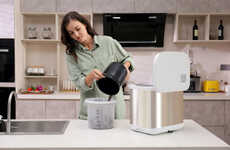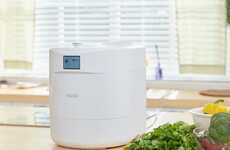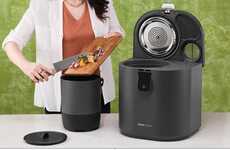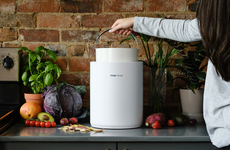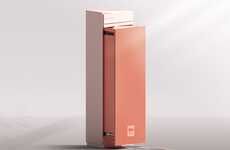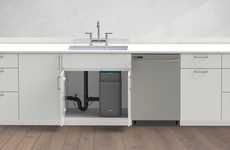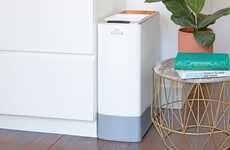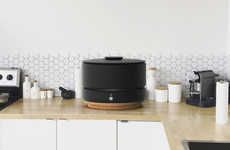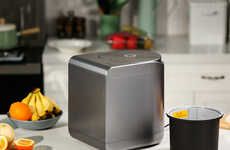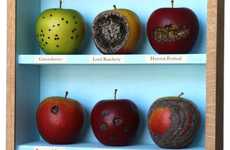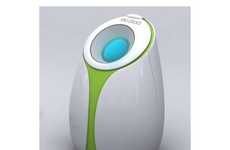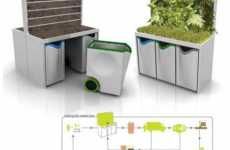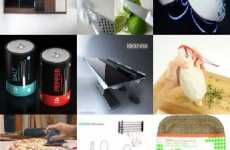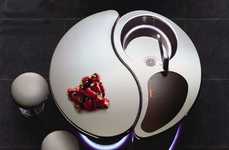
The 'Bio Pod' for Organic Waste
Elsa Blaine — August 5, 2008 — Art & Design
References: yankodesign
It is inevitable that putting organic food waste in landfills will be restricted or even prohibited in the years to come. With this in mind, designers are creating new, attractive ways to help home owners compost food waste. Jonathan Fenton has developed this concept design called the Bio Pod to deal with this.
The Bio Pod uses vacuum ionization to create a, “hygienic, bacteria and odour free environment that encourages the user to recycle organic waste.†The 'Pod' slows the decomposition rate of the waste so you can make less trips to the outdoor composter without the problems of smells and pests which can occur in as little as a day of indoor storage.
LED lights on the lid indicate the condition of the waste materials; a blue light means the waste is fresh, green tells you that decomposition has started, and red means the unit needs to be emptied. The unit is dishwasher safe removable liner, uses a 9 volt battery, and has an insulated body.
The Bio Pod uses vacuum ionization to create a, “hygienic, bacteria and odour free environment that encourages the user to recycle organic waste.†The 'Pod' slows the decomposition rate of the waste so you can make less trips to the outdoor composter without the problems of smells and pests which can occur in as little as a day of indoor storage.
LED lights on the lid indicate the condition of the waste materials; a blue light means the waste is fresh, green tells you that decomposition has started, and red means the unit needs to be emptied. The unit is dishwasher safe removable liner, uses a 9 volt battery, and has an insulated body.
Trend Themes
1. Home Composting - The trend of creating innovative, attractive solutions for home composting will continue as restrictions on landfill organic waste increase.
2. Food Waste Management - The growing awareness of the environmental impact of food waste will drive the development of new technologies and products for efficient food waste management.
3. Hygienic Waste Recycling - Innovations like the Bio Pod, which provides a hygienic and odor-free environment for recycling organic waste, will disrupt traditional waste disposal methods.
Industry Implications
1. Design - The design industry will play a crucial role in creating attractive and functional products for home composting.
2. Environmental Services - Environmental service companies will be in high demand as more households and businesses look for solutions to manage their organic waste.
3. Consumer Electronics - The consumer electronics industry can explore opportunities to develop technology-driven solutions for waste recycling and management.
4.6
Score
Popularity
Activity
Freshness


